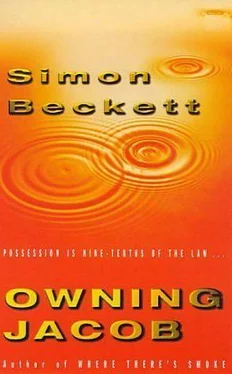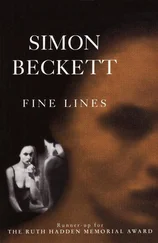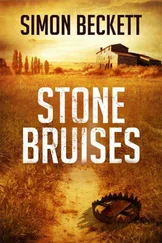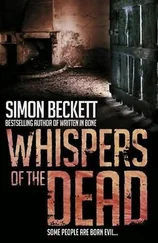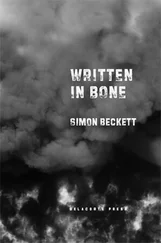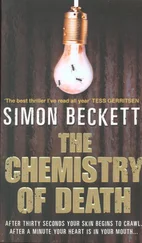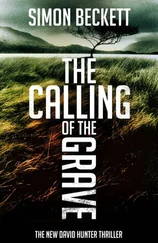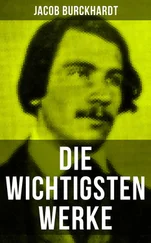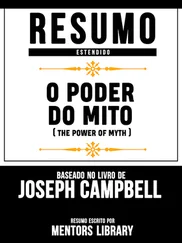Simon Beckett - Owning Jacob - SA
Здесь есть возможность читать онлайн «Simon Beckett - Owning Jacob - SA» весь текст электронной книги совершенно бесплатно (целиком полную версию без сокращений). В некоторых случаях можно слушать аудио, скачать через торрент в формате fb2 и присутствует краткое содержание. Город: London, Год выпуска: 1998, ISBN: 1998, Издательство: Hodder & Stoughton, Жанр: Триллер, на английском языке. Описание произведения, (предисловие) а так же отзывы посетителей доступны на портале библиотеки ЛибКат.
- Название:Owning Jacob - SA
- Автор:
- Издательство:Hodder & Stoughton
- Жанр:
- Год:1998
- Город:London
- ISBN:978-0-340-68594-5
- Рейтинг книги:3 / 5. Голосов: 1
-
Избранное:Добавить в избранное
- Отзывы:
-
Ваша оценка:
- 60
- 1
- 2
- 3
- 4
- 5
Owning Jacob - SA: краткое содержание, описание и аннотация
Предлагаем к чтению аннотацию, описание, краткое содержание или предисловие (зависит от того, что написал сам автор книги «Owning Jacob - SA»). Если вы не нашли необходимую информацию о книге — напишите в комментариях, мы постараемся отыскать её.
Owning Jacob - SA — читать онлайн бесплатно полную книгу (весь текст) целиком
Ниже представлен текст книги, разбитый по страницам. Система сохранения места последней прочитанной страницы, позволяет с удобством читать онлайн бесплатно книгу «Owning Jacob - SA», без необходимости каждый раз заново искать на чём Вы остановились. Поставьте закладку, и сможете в любой момент перейти на страницу, на которой закончили чтение.
Интервал:
Закладка:
Ben took a last look down the hill, then trudged back to his car.
He went back to the studio, even though the shoot had been cancelled. He’d unlocked and gone in before it occurred to him that perhaps he should be more careful.
Kale had already killed his own wife, and Ben had no illusions about what would happen if he encountered him again. But he couldn’t take the threat to himself seriously.
He didn’t doubt that Kale would kill him, given the chance, but he also knew what the man’s first priority was.
Jacob.
He tried to reassure himself that there was nothing to worry about. Kale was only one man, and, with his limp, neither an inconspicuous nor a very mobile one. Ex-soldier or not, it was only a matter of time before he was caught.
And then the entire question of who would have Jacob would be raised again, because no one could doubt now that Kale had forfeited the right to his son.
Except Ben couldn’t quite make himself believe it would be so simple.
He busied himself with make-work jobs; checking his darkroom stocks, minor repairs; anything to keep himself occupied. He’d almost resorted to cleaning the studio when he remembered the film he’d shot at the cemetery.
He wasn’t expecting anything from it but developing it gave him something to do. The first prints were enough to show that the film had been faulty. It happened occasionally.
The exposure was out, the colours so smudged and without resolution that the flowers were completely unrecognisable.
The wire mesh of the bin had become a blurred geometric pattern over abstract slashes of spectrum. He tossed them down in disgust. Then he looked at them again. He picked them up, turning them this way and that.
Actually, he thought, it was quite an interesting effect.
He printed the rest. It was the ambiguity that appealed to him. It changed mundane objects into something at once less concrete yet more substantial. What should have been representational now only hinted at its nature, provoking a vague sense of familiarity that defied recognition. He was considering how to reproduce the effect intentionally when the phone rang.
He snatched it up on the second ring.
“Hello?” he said, breathless.
“Is that Mr Murray?” He recognised the police inspector’s voice.
Oh, God, please. Please have caught him.
“Yes.”
The potential for good news remained for an instant longer, then it was shattered.
“I’m sorry,” the inspector began, and suddenly Ben didn’t want to hear the rest.
“Kale forced his way into the school this afternoon,” the policeman’s heavy voice continued, delivering all of it. “He’s got his son.”
It was on the TV. There were the school gates, the school itself a squat brick building behind them. There were crying children being led away by adults. There were eye-witness accounts, a police car with its rear end crumpled. There was a corroded bumper lying dented in the kerb, crystalline scatterings of glass.
The inspector had been apologetic. He’d had two officers stationed in a car right outside the main gates. They’d been warned how dangerous Kale was, told not to take any chances, to radio for assistance at the first sight of him.
But that hadn’t been until the rust-coloured Escort flung itself around the corner in a squeal of tyres and rammed into their car. Before it had stopped rocking Kale had materialised with a shotgun and blasted the radio and dashboard into fragments. He’d smashed the gun butt into the nearest policeman’s face, ordered the second one out and clubbed him unconscious as well.
Then he’d gone into the school, taken Jacob and driven away.
“We didn’t know he was armed,” Norris said. “If we had...”
“If you had, it wouldn’t have made any difference. Somehow Kale would still have taken Jacob.”
Even as he added the forgotten shotgun to the list of blame he had to carry, Ben felt the inevitability of it, as though this was the way it had to be, that events were drawing together towards an unavoidable resolution whose shape he could almost make out, but was frightened to see.
He barely heard the policeman’s assurances that Kale would be caught, that the car had been damaged, that a crippled man and an autistic boy couldn’t get far on foot. He was remembering how Kale had shot the bull terrier rather than let anyone else take it.
It’s my dog.
He’s my boy.
He didn’t think he’d ever felt so scared.
The phone rang constantly at first. It wore him down, the hope and fear that each ring provoked. But it was only people wanting to offer their support, asking if there was any news. He told everyone the same thing. Thank you, no there wasn’t, he’d let them know. He asked them all not to phone again, explained he wanted to keep the line clear. Eventually the calls dwindled and stopped, leaving him alone.
That was just as bad.
It was impossible to sit still. He moved from room to room in the house, just to keep moving, to evade the panic that threatened to overtake him. He poured himself a drink, but left it after the first mouthful. It would only have been an artificial relief and he didn’t want to feel dulled. The sandwich he made went uneaten.
It was a completely different feeling to when Sarah had died. Then it had been disbelief and numbness. Even when she was dying, as bad as that had been, he had known what was happening, had been there with her. Now he didn’t know anything, not even if Jacob was alive or dead, his brains blown out like Kale’s dog.
The only thing he was certain of was that Kale wouldn’t give up his son again.
Colin called around later that evening. “You haven’t heard anything?” he asked as Ben let him in, but it wasn’t really a question.
They sat in the kitchen, drinking coffee, not really talking.
“Maggie sends her love,” Colin said at one point.
Ben nodded, not caring. A distant thought surfaced. “Aren’t you supposed to be going on holiday?”
“Not till tomorrow morning.”
“Have you packed?”
The inanity of it made them both smile. The moment quickly passed.
“Maggie’ll do it.” Colin hesitated. “Anyway, I’ve told her I might not be going.”
“Why not?”
“Come on, Ben.”
“There’s no point missing your holiday.”
“I can manage without Donald Duck for a few more days.”
“I know, but—”
“Ben,” Colin said, quietly but firmly, “I’m not going to go, okay? It’s my decision. I’ve told Maggie I’ll fly out to them as soon as all this is sorted. So long as the boys can go on the rides they won’t even notice I’m not there. I’ll make it up to them later, and Maggie... well, Maggie’ll have to make do with my Gold Card.”
Ben looked at him, surprised even through the haze of anxiety.
Colin shrugged. “Something like this puts things in perspective.”
He didn’t say any more, but the look on his face was more like the old, pre-suicide Colin.
He stayed till quite late, until finally Ben told him to go home.
After he’d gone Ben went into the lounge. He turned on the TV and sat down in front of it. He didn’t realise he was tired, would have said he could never sleep, but at some point he slipped into a doze.
He jerked awake on the settee, heart racing. The TV was showing a snow-filled screen. A soft hiss of static filled the room.
The house was silent. He saw that it was after two o’clock. He went to the phone and lifted the receiver to make sure it was still working. While it was in his hand he considered calling Norris. But the inspector had promised to let him know if anything happened. He put down the receiver without dialling.
Where are they?
Читать дальшеИнтервал:
Закладка:
Похожие книги на «Owning Jacob - SA»
Представляем Вашему вниманию похожие книги на «Owning Jacob - SA» списком для выбора. Мы отобрали схожую по названию и смыслу литературу в надежде предоставить читателям больше вариантов отыскать новые, интересные, ещё непрочитанные произведения.
Обсуждение, отзывы о книге «Owning Jacob - SA» и просто собственные мнения читателей. Оставьте ваши комментарии, напишите, что Вы думаете о произведении, его смысле или главных героях. Укажите что конкретно понравилось, а что нет, и почему Вы так считаете.
